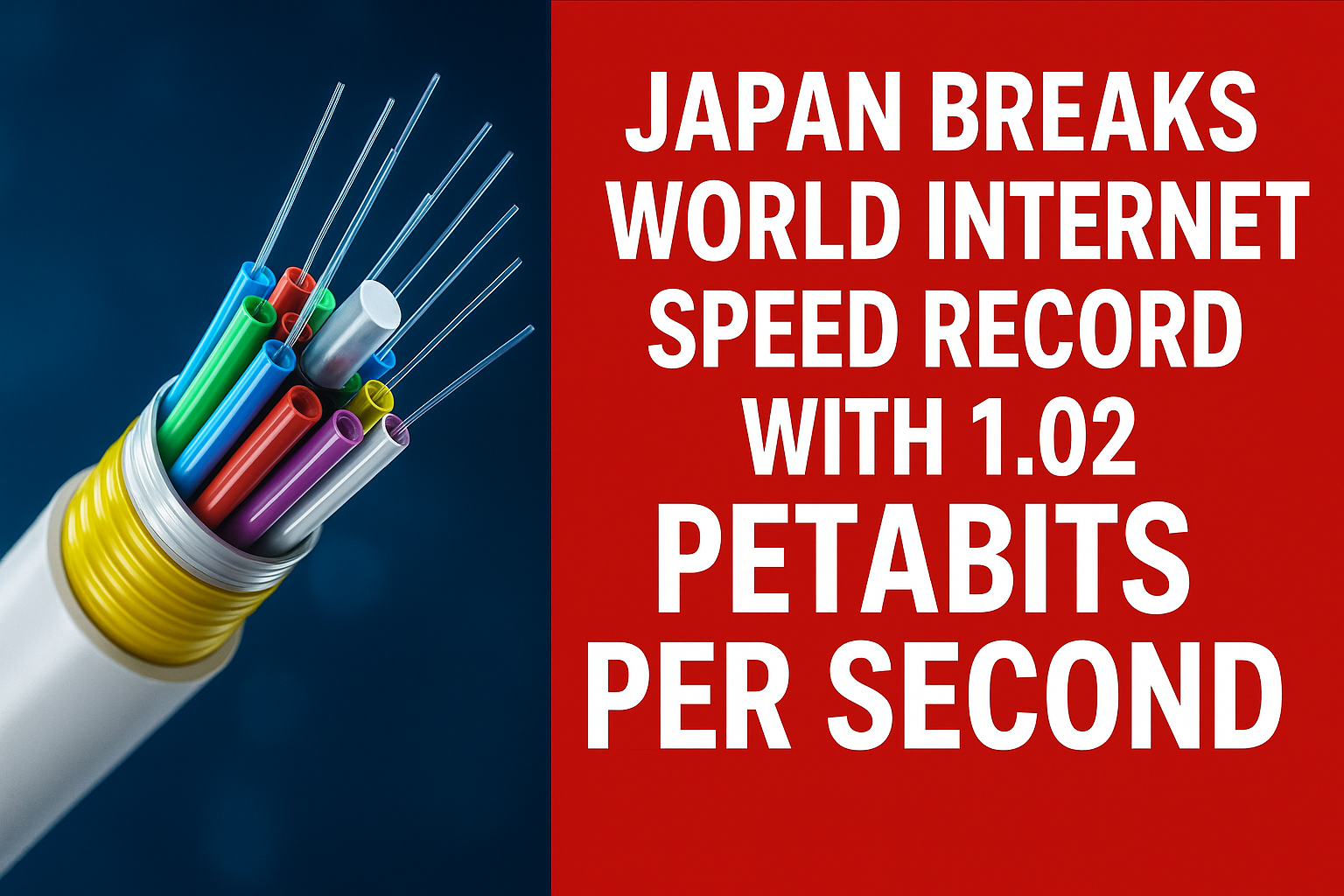Enough to download the entire Netflix library in under one second
- Japan’s NICT hits record 1.02 petabits per second over 1,808 km using standard-sized fiber.
- The breakthrough could download Netflix’s entire library in under one second.
- New 19-core fiber fits in the same size as current single-core cables.
- First-ever petabit-class signal to travel over 1,000 kilometers in standard optical cable.
- System used 180 wavelengths and advanced MIMO digital signal processing.
Japan has officially set a new global benchmark in internet speed, achieving a jaw-dropping 1.02 petabits per second over a distance of 1,808 kilometers. The feat, announced in May 2025, was accomplished by the National Institute of Information and Communications Technology (NICT) in collaboration with Sumitomo Electric and European partners.
To put it in perspective, 1.02 petabits per second equals 1,020,000,000 megabits per second—more than 3.5 million times faster than the average U.S. broadband speed of 290 Mbps, according to TechRadar Pro.
A Cable No Thicker Than a Human Hair
Remarkably, the breakthrough used a 19-core optical fiber that shares the same 0.125 mm cladding diameter as traditional single-core fibers. That means the technology fits within current infrastructure footprints, avoiding the need to dig new trenches or replace existing conduits.
The system ran signals through the fiber 21 times using loops of 86.1 kilometers. Specialized amplifiers boosted the signal across both the C and L wavelength bands for all 19 cores. By using 180 wavelengths modulated with 16QAM, the researchers managed to create massive parallel data streams with minimal signal degradation.
Record-Breaking Data Efficiency
After transmission, the data was extracted with a multi-channel receiver employing advanced MIMO (multiple-input and multiple-output) digital signal processing. The end result? A record-setting capacity-distance product of 1.86 exabits per second-kilometer.
The implications are staggering. At that speed, you could theoretically download the entire Netflix library—or any major streaming platform’s entire catalog—in less than one second.
What Comes Next?
The achievement was presented as a post-deadline paper at OFC 2025, one of the world’s premier optical networking conferences. Researchers noted that while such speeds won’t be available to consumers overnight, the technology proves that current fiber infrastructure still holds untapped potential.
Future work will focus on optimizing signal processing and amplifier efficiency for scalable, real-world deployment. As global data traffic surges with AI, 8K video, and virtual reality applications, innovations like this could reshape how we think about the internet backbone.
(with inputs from TechRadar)
A global media for the latest news, entertainment, music fashion, and more.














